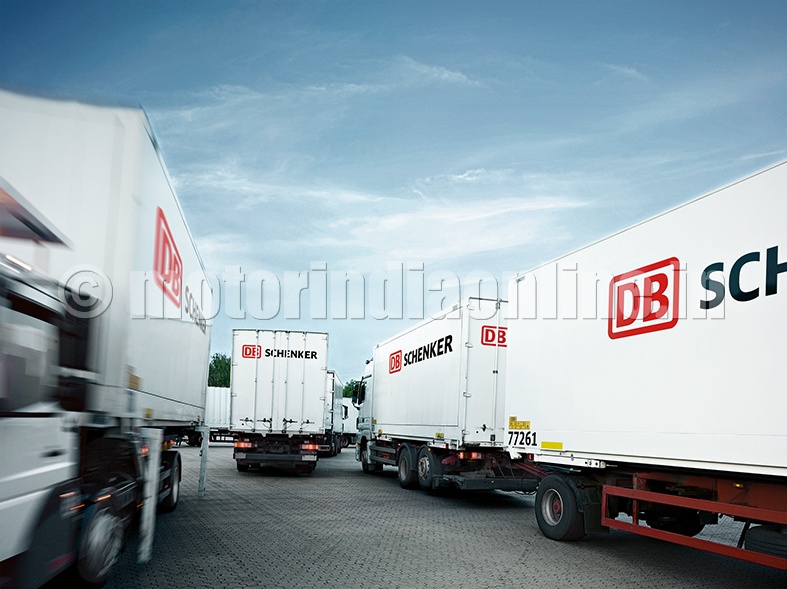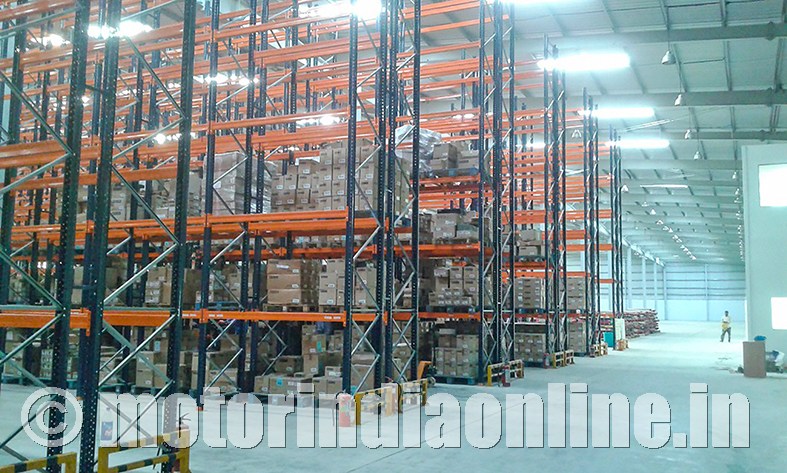A fully-owned subsidiary of DB Schenker, Schenker India is emerging as a force to reckon with, in offering international air and ocean freight, contract logistics, and global supply chain solutions. Its Chief Commercial Officer, Mr. Paul George, spoke to MOTORINDIA on how land transportation is prodigious for his company’s business in India and worked out methodologies to transform it, amid discussions on GST and infrastructural reforms in India, freight rate challenges, and technologization of processes.

The world we live in is fast changing. In all walks of life, across all businesses and sectors, neo-modern disruption and digitization are usurping people and processes. The present state of affairs at any given point can never be taken for granted, while innovation and futuristic thinking puts us in onward motion. Challenging the status quo in the logistics industry in India for more than 20 years is Schenker India whose warehousing and supply chain management is redefining the way the industry operates.
Schenker India’s prime focus remains to be freight forwarding, contract logistics and land transportation, catering to esteemed clients in verticals, including Automotive, Industrial, Electronics, Solar and Semicon energy, Retail Consumer and Healthcare and Pharma.
In particular, automotive logistics is of prime importance to Schenker India. Almost every leading automotive and component manufacturing group in the country forms its clientele, catering to their specific needs and expectations.
Down the ‘Road’
Mr. Paul George observed that India and China are the fastest growing regions in global logistics today. “DB Schenker follows common growth methodology and target, but with different regional strategies. Our mission is to emerge as a leading integrated transportation and logistics provider globally. In India, our goal is to leverage road transportation to its potentials and get operations fully organized and efficient to the nth level, informed by state-of-the-art technologies. We need large and competent transportation players to suit our approach and requirements. Being organized at all levels and efficient to the core is important for our standards of service delivery”.
GST – ‘Work in Progress’
This ‘hub-and-spoke’ model is here to gain momentum in India as GST was introduced an year back. “That’s the supply chain model we stick to across the globe can redefine the way business is done, especially in the age of smart manufacturing and e-commerce”, he added.
Further, demand for efficient logistics is increasing multifold in India. “With ‘Make-in-India’ and Smart manufacturing picking up, import of raw materials and component goods are likely to go up, as does the export of finished goods – a booming moment for the freight industry”, commented the CCO.
The company says that its workforce consists of qualified and insightful people from all verticals it deals with. In fact, even Mr. Paul George is from the automotive industry with over 25 years of experience. “That way, we understand the value chain processes better and ameliorate it”, he claimed.
What makes Schenker India unique and extraordinary? Mr. Paul George reacted: “We have large global contracts, relationships and an impressive brand image that businesses in India can’t afford to ignore. We have all major companies here and dedicated to build their global group’s supply chain. Together with industry-leading electronic technologies, freight handling capabilities in all modes within the country and beyond, and organic demand in the domestic market, Schenker India’s future is brighter than ever”.

